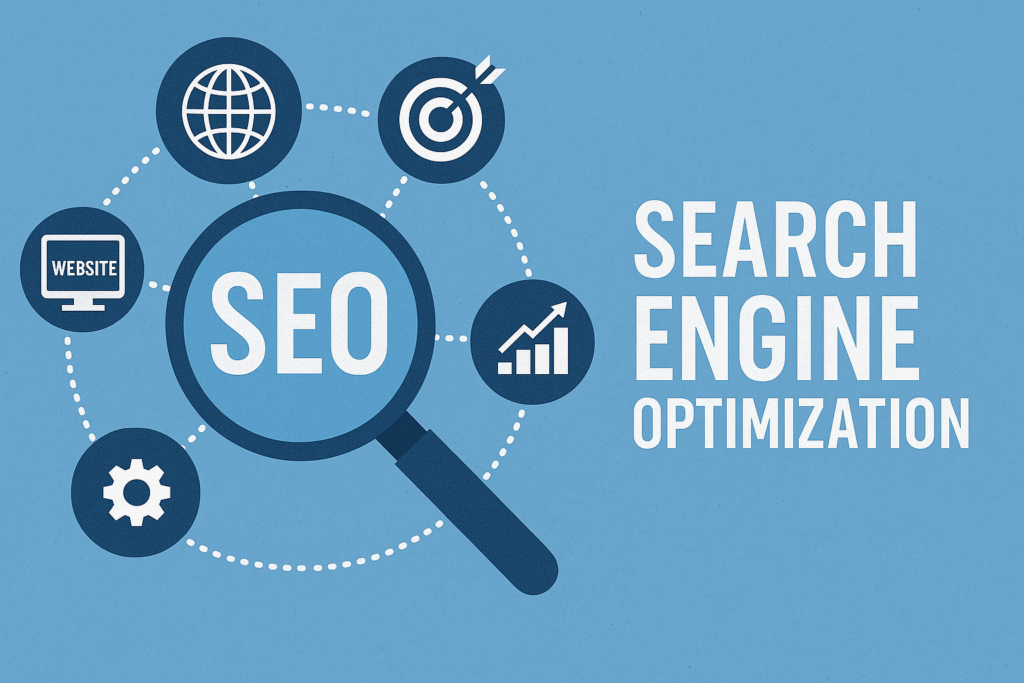SEO Engine Optimization, often simply called SEO, is the process of enhancing a website to improve its visibility when people search for products or services on search engines like Google, Bing, or Yahoo. It includes a combination of on-page, off-page, and technical efforts designed to help your site appear higher in search results for relevant queries.
Contrary to what some think, SEO isn’t just about keywords. It’s about user experience, site structure, content quality, speed, and how others on the web reference your pages. Done right, it turns your website into a lead-generating machine that works 24/7.

Even with the rise of social media, email marketing, and paid ads, SEO continues to be the backbone of long-term digital success. Here’s why:
In a world saturated with content, SEO engine optimization helps you rise above the noise.
Search engines send out bots (also known as crawlers or spiders) to visit pages across the internet. These bots read your site’s content and structure to understand what it’s about. Once crawled, the page is indexed in the search engine’s database.
Google uses over 200 ranking signals. Here are a few you can influence:
Use tools like Google Keyword Planner, Ubersuggest, or Ahrefs to find:
Write compelling meta titles that include the target keyword near the beginning. Use header tags (H1-H6) to organize your content logically.
Technical SEO ensures search engines can crawl and understand your site effectively. Focus on:
Your site’s reputation on the web plays a major role in rankings.
Backlinks act like votes of confidence for your site.
Content is still king—but now it’s also the engine of your SEO strategy.
Use the pillar-and-cluster model:
This helps Google see your site as a go-to source on specific topics.
Over 60% of searches happen on mobile, and voice search queries are growing fast. Here’s how to adapt:
If you serve customers in a specific area, local SEO is a must. Here’s how:
These tools make SEO engine optimization easier and more effective:
Q1: What is the difference between SEO and SEM?
SEO is organic optimization. SEM includes paid advertising like Google Ads.
Q2: How long does SEO take to show results?
Typically 3 to 6 months, depending on competition and strategy.
Q3: Can I do SEO myself?
Yes, but expect a learning curve. Using tools and following best practices helps.
Q4: What’s the best way to learn SEO?
Start with resources like Moz, Neil Patel, and Google’s SEO Starter Guide. 👉 Google’s SEO Starter Guide
Q5: Does social media affect SEO?
Indirectly. Strong social signals can increase traffic and brand mentions.
SEO engine optimization isn’t a one-time project—it’s an ongoing process that can fuel your business growth for years to come. By combining technical excellence, great content, and consistent effort, you can dominate search rankings and turn traffic into customers.
So, are you ready to take your site from invisible to unstoppable?
Transforming businesses through innovative digital marketing strategies.
About Us
Case Studies
Careers
Contact
© 2025 Digits Marketer. All rights reserved.
WhatsApp us